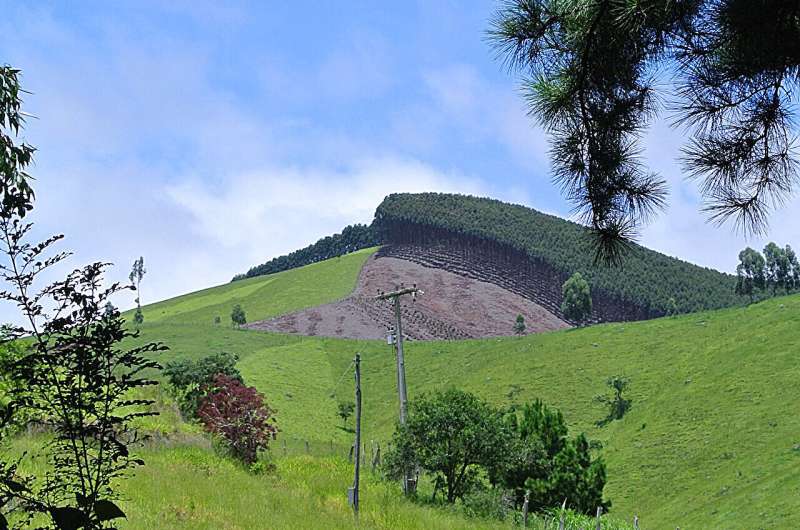This article has been reviewed according to Science X's editorial process and policies. Editors have highlighted the following attributes while ensuring the content's credibility:
fact-checked
peer-reviewed publication
trusted source
proofread
War a biodiversity enemy even in peaceful locales, says study

"War is hell" usually applies to war zones, but the Ukraine-Russian war's protracted battles can take a toll on biodiversity as far away as the United States or Brazil.
The complexities of global markets can mean a war that feels far away can still pose environmental harm. A paper, "Telecoupled impacts of Russia-Ukraine war on global cropland expansion and biodiversity," in Nature Sustainability examines how restricting food exports from Ukraine and Russia can spur farmers in other countries to expand their croplands to meet shifting demand, which can decimate forests or other natural habitats.
The integrated framework of telecoupling has helped broaden the understanding of war impact far beyond the war zone worldwide, said senior author Jianguo "Jack" Liu, Rachel Carson Chair in Sustainability at Michigan State University. This method allows scientists to consider information from many sources across the world, as well as the reactions and feedbacks, to find unintended and unexpected consequences.
The study concludes that Russia's pulling out of the Black Sea Grain Initiative would lead to a doubling of cropland expansion and biodiversity loss.
Should crop exports from Russia and Ukraine stop, cropland expansion would increase biodiversity loss by some 4.5 times. The authors urge that the damage to the natural world should also be brought to the forefront as this damage is often irreversible with short timespans. Once natural land is converted to cropland, it would take decades, if not centuries, for ecosystem quality to recover.
"Effective interventions should be taken to avert farmers in biodiversity hotspots such as Brazil's Cerrado, and Southeast Asia from blindly and rapidly expanding their agricultural land driven by inflated prices due to the war," the authors said. "Informed policy can stop the rapid expansion of cropland."
More information: Li Chai et al, Telecoupled impacts of the Russia–Ukraine war on global cropland expansion and biodiversity, Nature Sustainability (2024). DOI: 10.1038/s41893-024-01292-z
Journal information: Nature Sustainability
Provided by Michigan State University




















